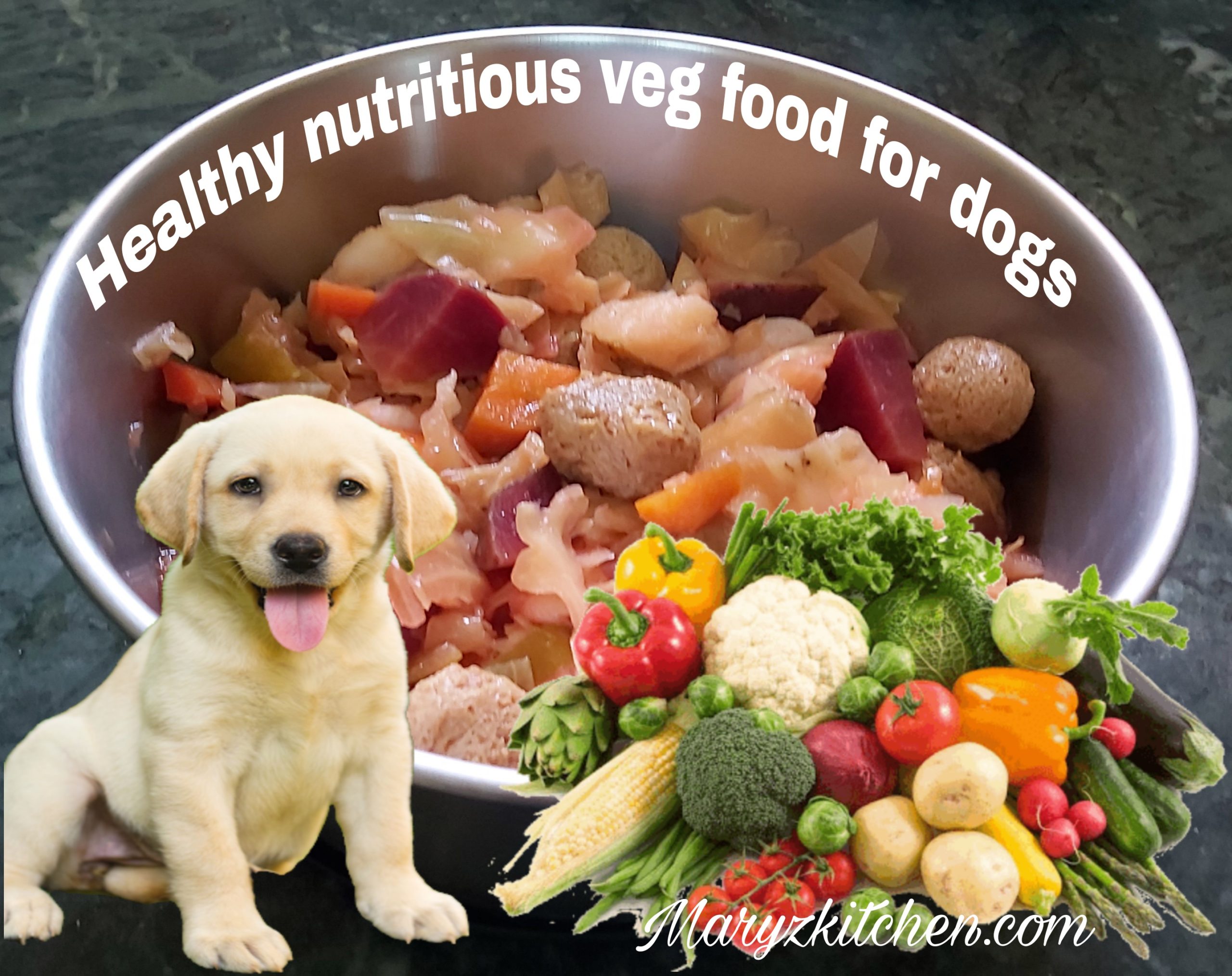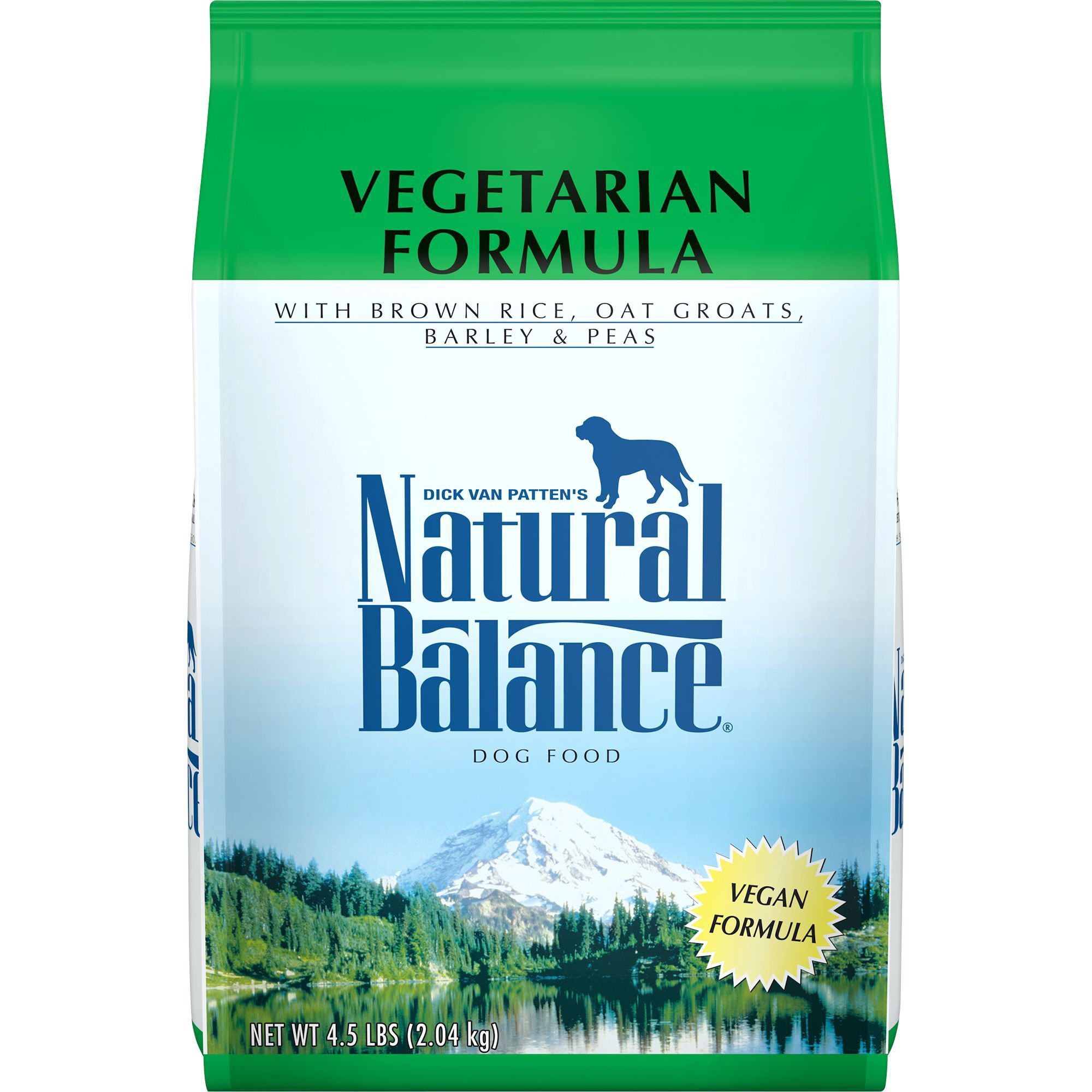Vegetarian dog food has emerged as a compelling alternative for pet owners seeking to provide their furry companions with a healthy and compassionate diet. As the trend towards vegetarianism continues to gain momentum in the realm of pet ownership, this comprehensive guide delves into the intricacies of vegetarian dog food, exploring its types, benefits, and considerations.
Delve into the fascinating world of vegetarian dog food, where nutrition and compassion intertwine to create a healthier and more sustainable future for our beloved canine friends.
Introduction

Vegetarian dog food is a type of pet food that is made without any animal products, including meat, poultry, or fish. Instead, it is made with plant-based ingredients such as grains, legumes, vegetables, and fruits.
The trend of vegetarianism in pet ownership is on the rise, as more and more people are choosing to adopt a plant-based lifestyle for themselves and their pets. There are many reasons why people choose to feed their dogs a vegetarian diet, including ethical concerns about the treatment of animals, environmental concerns about the impact of meat production on the planet, and health concerns about the potential for meat-based diets to contribute to obesity, heart disease, and other health problems in dogs.
Benefits of Vegetarian Dog Food
There are many potential benefits to feeding your dog a vegetarian diet. These include:
- Reduced risk of obesity and heart disease
- Improved digestion
- Reduced risk of allergies and skin problems
- Increased energy levels
- Improved coat and skin health
Considerations for Feeding Your Dog a Vegetarian Diet
There are also some considerations to keep in mind when feeding your dog a vegetarian diet. These include:
- Ensuring that your dog is getting all of the nutrients they need from their diet
- Monitoring your dog’s weight and body condition to ensure that they are not losing weight or becoming too thin
- Watching for signs of nutritional deficiencies, such as dull coat, dry skin, or lethargy
Types of Vegetarian Dog Food
Vegetarian dog food is a complete and balanced diet that does not contain any animal products. It is made with a variety of plant-based ingredients, such as grains, legumes, vegetables, and fruits.
There are many different types of vegetarian dog food available, each with its own unique ingredients and nutritional value. Some of the most common types of vegetarian dog food include:
Grain-based vegetarian dog food
Grain-based vegetarian dog food is made with a variety of grains, such as brown rice, quinoa, and oats. These grains provide carbohydrates, fiber, and other essential nutrients. Grain-based vegetarian dog food is often a good choice for dogs with sensitive stomachs or allergies.
Legume-based vegetarian dog food
Legume-based vegetarian dog food is made with a variety of legumes, such as beans, lentils, and peas. Legumes are a good source of protein, fiber, and other essential nutrients. Legume-based vegetarian dog food is often a good choice for dogs with a high energy level.
Vegetable-based vegetarian dog food
Vegetable-based vegetarian dog food is made with a variety of vegetables, such as carrots, sweet potatoes, and broccoli. Vegetables are a good source of vitamins, minerals, and antioxidants. Vegetable-based vegetarian dog food is often a good choice for dogs with a sensitive stomach or allergies.
Fruit-based vegetarian dog food
Fruit-based vegetarian dog food is made with a variety of fruits, such as apples, bananas, and blueberries. Fruits are a good source of vitamins, minerals, and antioxidants. Fruit-based vegetarian dog food is often a good choice for dogs with a sweet tooth.
Benefits of Vegetarian Dog Food
Vegetarian dog food has gained popularity due to its potential health benefits for canines. Studies suggest that a plant-based diet may reduce the risk of certain diseases, improve digestion, and aid in weight management.
Reduced Risk of Certain Diseases
Vegetarian diets may lower the risk of chronic diseases common in dogs, such as cancer, heart disease, and diabetes. Plant-based foods are rich in antioxidants and phytochemicals, which have been shown to have anti-inflammatory and anti-cancer properties. By reducing inflammation and oxidative stress, a vegetarian diet may help protect against the development of these diseases.
Improved Digestion
Vegetarian dog food is often high in fiber, which can improve digestion and promote regularity. Fiber helps to move food through the digestive tract, preventing constipation and other digestive issues. Additionally, the prebiotics and probiotics found in plant-based foods can support a healthy gut microbiome, further enhancing digestion and overall well-being.
Weight Management
Vegetarian dog food tends to be lower in calories and fat than meat-based diets. This makes it a suitable option for dogs who are overweight or obese. Plant-based foods are also filling, which can help dogs feel satisfied and reduce their overall food intake.
By managing their weight, vegetarian diets can help prevent obesity-related health problems, such as joint pain and heart disease.
Considerations for Feeding Vegetarian Dog Food
Feeding your dog a vegetarian diet requires careful consideration and planning to ensure their nutritional needs are met. Here’s a comprehensive guide to help you make an informed decision.
Before transitioning your dog to a vegetarian diet, it’s essential to consult with a veterinarian to determine if it’s appropriate for their individual health needs.
Nutritional Requirements
Vegetarian dog food must provide all the essential nutrients that a dog requires, including protein, carbohydrates, fats, vitamins, and minerals.
Protein:Dogs need high-quality protein sources, such as legumes, tofu, tempeh, and quinoa.
Carbohydrates:Whole grains like brown rice, oats, and barley provide complex carbohydrates for energy.
Fats:Healthy fats from sources like flaxseed, olive oil, and avocados are essential for energy and nutrient absorption.
Vitamins and Minerals:Vegetarian dog food should be fortified with vitamins B12, D, and calcium, as these nutrients are not readily available in plant-based sources.
Transition Strategies, Vegetarian dog food
Transitioning your dog to a vegetarian diet should be done gradually over several weeks to minimize digestive upset.
Start by mixing a small amount of vegetarian food with their regular diet and gradually increase the ratio over time.
Monitor your dog’s response closely and adjust the transition pace as needed.
Potential Risks
While a vegetarian diet can be beneficial for some dogs, it’s important to be aware of potential risks:
- Protein Deficiency:Vegetarian dog food must be carefully formulated to provide adequate protein.
- Vitamin B12 Deficiency:Vitamin B12 is not found in plant sources, so supplementation is essential.
- Digestive Issues:Transitioning to a vegetarian diet too quickly can cause digestive upset.
Regular veterinary checkups are crucial to monitor your dog’s health and ensure their nutritional needs are being met on a vegetarian diet.
Brands and Products

Choosing the right vegetarian dog food brand and product is crucial for ensuring your pet’s nutritional well-being. Several reputable brands offer high-quality options, each with its unique blend of ingredients and price range.
The following table provides a comparison of different vegetarian dog food brands and products, including information on price, ingredients, and customer reviews:
Brand Comparison Table
| Brand | Product Name | Price | Ingredients | Customer Reviews |
|---|---|---|---|---|
| V-Dog | Kind Kibble | $25 for 25 lbs | Pea protein, brown rice, oats, lentils, carrots, spinach | 4.5 stars on Amazon |
| Amy’s Kitchen | Vegetarian Dog Food | $30 for 24 lbs | Organic brown rice, organic peas, organic carrots, organic spinach, organic sweet potatoes | 4 stars on Chewy |
| Nature’s Variety | Instinct Vegetarian | $28 for 22 lbs | Pea protein, brown rice, lentils, carrots, spinach, sweet potatoes, blueberries | 4.2 stars on Petco |
| The Honest Kitchen | Dehydrated Vegetarian Dog Food | $35 for 10 lbs | Organic chickpeas, organic lentils, organic peas, organic brown rice, organic carrots | 4.7 stars on The Honest Kitchen website |
| Open Farm | Vegetarian Dog Food | $27 for 25 lbs | Pea protein, brown rice, lentils, carrots, spinach, sweet potatoes, pumpkin | 4.3 stars on Open Farm website |
Remember to consult with your veterinarian before switching your dog to a vegetarian diet and carefully read the ingredient list of any product you choose to ensure it meets your pet’s specific nutritional needs.
Recipes for Vegetarian Dog Food
Preparing homemade vegetarian dog food is a great way to control your dog’s diet and ensure they receive the nutrients they need. Here are a few easy-to-follow recipes to get you started.
When creating vegetarian dog food recipes, it’s essential to ensure they are nutritionally complete and balanced. This means including a variety of ingredients from different food groups to provide all the essential nutrients your dog needs. Some key nutrients to consider include protein, carbohydrates, fats, vitamins, and minerals.
Quinoa and Lentil Dog Food
- 1 cup cooked quinoa
- 1 cup cooked lentils
- 1/2 cup chopped carrots
- 1/2 cup chopped celery
- 1/4 cup chopped broccoli
- 1/4 cup chopped sweet potato
- 1 tablespoon olive oil
- 1/4 teaspoon salt
- 1/4 teaspoon black pepper
Instructions:
- Combine all ingredients in a large bowl.
- Mix well until all ingredients are evenly distributed.
- Serve to your dog immediately or store in an airtight container in the refrigerator for up to 3 days.
Nutritional Information:
- Calories: 300
- Protein: 20 grams
- Carbohydrates: 50 grams
- Fat: 10 grams
- Fiber: 10 grams
Conclusion
In conclusion, feeding a vegetarian diet to dogs can be a viable option with careful planning and consideration. While it offers potential benefits, it is crucial to ensure that the diet meets the dog’s nutritional requirements and is supplemented with essential nutrients that may be lacking in plant-based sources.
Ultimately, the decision of whether or not to adopt a vegetarian diet for your dog should be made in consultation with a qualified veterinarian. They can assess your dog’s individual needs and guide you in creating a balanced and healthy diet that supports their well-being.
Question Bank
Can dogs be healthy on a vegetarian diet?
Yes, dogs can be healthy on a vegetarian diet as long as it is nutritionally complete and balanced. Vegetarian dog food provides all the essential nutrients that dogs need, including protein, carbohydrates, fats, vitamins, and minerals.
What are the benefits of feeding my dog vegetarian food?
Vegetarian dog food offers several potential benefits, including reduced risk of certain diseases, improved digestion, and weight management. Plant-based diets are typically lower in calories and fat than meat-based diets, which can help dogs maintain a healthy weight.
How do I transition my dog to a vegetarian diet?
Transitioning your dog to a vegetarian diet should be done gradually over a period of 7-10 days. Start by mixing a small amount of vegetarian dog food with their regular food and gradually increase the amount of vegetarian food each day until they are eating 100% vegetarian food.

